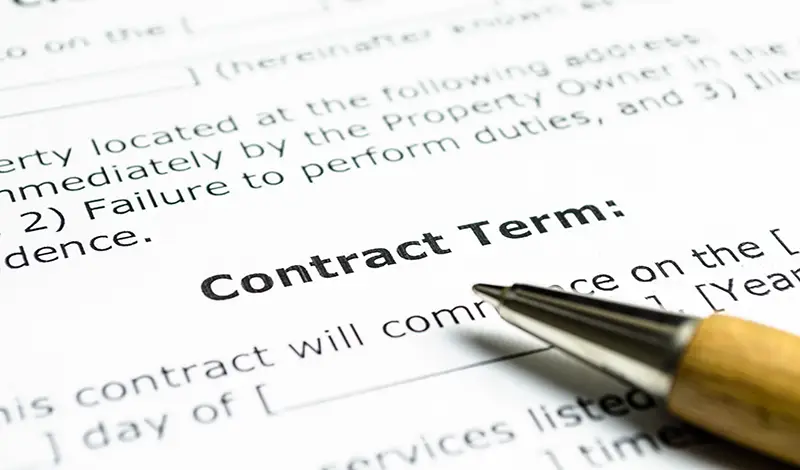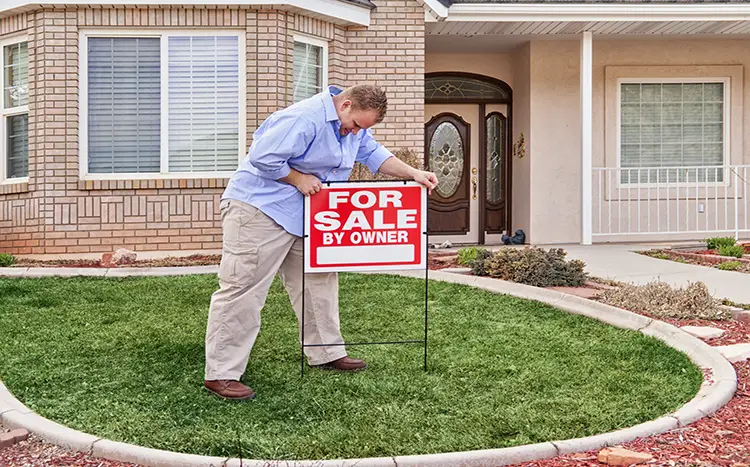Can a Seller Back Out of a Contract?
Published on August 21, 2024 | 6 Minute read

Melanie
Ortiz Reyes
Content Specialist
One of the biggest questions that can arise during a real estate transaction is: Can a seller back out of a contract? Whether you’re a buyer worried about losing your dream home or a seller reconsidering your decision, understanding the ins and outs of backing out of a contract before beginning the buying or selling process is important.

Understanding the Purchase Agreement
First, let’s talk about the purchase agreement. This is the legally binding contract that both the buyer and the seller sign when they agree to a home sale. The purchase agreement outlines all the terms of the sale, including the purchase price, contingencies, closing date, and any other conditions that both parties have agreed upon.
Once this contract is signed, both the buyer and the seller are generally expected to follow through with the terms. However, real estate transactions can be complex, and there are situations where a seller might want to back out of the deal.

When Can a Seller Back Out?
Sellers typically have fewer opportunities to back out of a contract compared to buyers, but there are still some scenarios where it’s possible:
1. Contractual Contingencies:
Just like buyers, sellers can include contingencies in the contract that must be met for the sale to go through. If these contingencies aren’t fulfilled, the seller might have a valid reason to back out.
2. Mutual Agreement:
If both the buyer and seller agree to terminate the contract, the seller can back out without any legal repercussions. This might happen if the buyer is understanding of the seller’s situation or if both parties find an alternative solution that works for them.
3. Breach of Contract by the Buyer:
If the buyer fails to meet the terms of the contract, such as not securing financing within the agreed timeframe or not making a required deposit, the seller may have the right to back out of the sale. This is considered a breach of contract by the buyer, and it can give the seller grounds to cancel the deal.
4. Home Sale Contingency:
Some sellers include a home sale contingency, meaning the sale is contingent upon the seller finding a new home. If the seller is unable to find a suitable new home within a specified period, they may be able to back out of the contract.
5. Legal Right to Cancel:
In certain states, sellers have a legal right to cancel a contract within a specific period, often referred to as a “cooling-off period.” This period allows the seller to change their mind without facing legal consequences, but it’s important to note that this is not available in all states and is usually limited to specific circumstances.
6. Title Issues:
If there are issues with the title that cannot be resolved, such as an undisclosed lien or a problem with the deed, the seller may be unable to legally transfer ownership. In such cases, the contract might be voided, allowing the seller to back out.

The Risks of Backing Out as a Seller
While there are scenarios where a seller can legally back out of a contract, doing so is not without risks. Here are some potential consequences a seller might face:
1. Lawsuits and Legal Action:
If a seller backs out of a contract without a valid reason, the buyer may choose to sue for breach of contract. This could result in the seller being required to pay damages, which might include covering the buyer’s costs for inspections, appraisals, and even legal fees. In some cases, the court might even force the seller to go through with the sale (specific performance).
2. Return of Earnest Money:
If the seller backs out, they must return the buyer’s earnest money deposit. Earnest money is typically 1% to 3% of the home’s purchase price, and it shows the buyer’s good faith in the transaction. Failing to return the earnest money can lead to additional legal issues.
3. Reputation Damage:
Backing out of a contract can harm the seller’s reputation, particularly if they plan to sell the home to someone else later. Real estate agents, other buyers, and local professionals might be hesitant to work with a seller who has a history of backing out of deals.
4. Loss of Time and Money:
If the seller backs out, they’ll likely have to start the selling process over again, which can be time-consuming and costly. They might also face a lower selling price if the market conditions have changed since the original agreement.

How Buyers Can Protect Themselves
If you’re a buyer worried about the seller backing out, there are steps you can take to protect yourself:
1. Include a Specific Performance Clause:
A specific performance clause in the contract requires the seller to complete the sale if they try to back out without a valid reason. This clause gives the buyer the right to take legal action to enforce the sale.
2. Make Sure the Earnest Money is Protected:
Ensure that the contract specifies under what conditions the earnest money will be returned to you if the seller backs out. This provides a financial safety net if the deal falls through.
3. Conduct Thorough Due Diligence:
Work with your real estate agent and attorney to thoroughly review the contract and any contingencies. Understanding the terms and conditions can help you identify potential issues that might lead the seller to back out.

Backing Out: Possible but Complicated
While it is possible for a seller to back out of a contract, it’s not something that should be done lightly. The potential legal, financial, and reputational risks make it a decision that requires careful consideration and, ideally, professional advice.
If you’re a seller considering backing out, you’ll need to understand the terms of your contract, the reasons for your change of heart, and the possible consequences. Consulting with a real estate attorney or professional can help you navigate the situation and determine the best course of action.